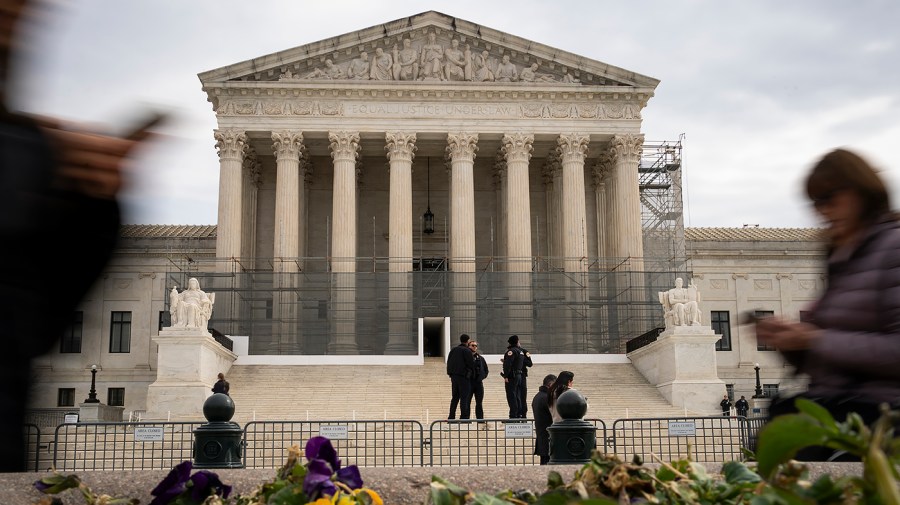A judicial doctrine preferred by conservatives can stand Trump

The beginning of Trump’s second presidency was distinguished by the unilateral use of executive orders to restructure the federal government and politics. These measures were met near silence of the Republican Congress.
Party, narrow majority and Trump’s personal loyalty may explain this. Some see that Congress waives a lot of strength that has abandoned its constitutional duties to provide checks, balances and separate the forces. This waiver of power – either explicitly by legislation or implicitly by inability – can be created a constitutional dilemma, leaving some Americans in the hope that the judiciary will serve as an examination of the administration.
Federal courts have already remained many Trump initiatives. Among the tools that the judiciary may resort to is to stimulate the “principle of unloading”, which states that “Congress cannot publish its legislative powers or its ability to laws to other entities. This ban usually involves the congressional authorization to its powers of administrative agencies or to private organizations.”
The doctrine is rooted in Article 1, the first section of the constitution, which wears the legislative authority in the House of Representatives and the Senate. The status of laws, as well as jobs such as allocating money, are legislative functions by nature that Congress may not abandon to another branch of the government or a private entity.
The constitutional importance of the doctrine of not being disposed of during the first part of the twentieth century with the new deal and the rise of the organizational state. When Congress established organizational agencies – such as the Food and Drug Administration, the Securities and Stock Exchange Committee and the Federal Trade Committee – they were delegated to them a broad authority to determine what is safe drug, secretion of securities or unfair competition. In fact, these agencies have given a broad authority to issue administrative rules that bear the power of law.
In 1928, the Supreme Court placed this delegation at Jw Hampton V. United State. She saw that the mandate was allowed as long as there was a “clear” limit to estimate the authority used by the Administrative Agency. Congress was unable to transfer an executive law, including the president, an unlimited discretionary authority to make the law or politics. For example, he was unable to adopt a law that he said, “Congress moves its authority in the field of laws to the executive branch.”
The most famous issue that calls for a non -discharge belief was in 1935 in the Schechter Poultry Corp. Here the insecurity doctrine was used to reduce parts of what is indicated as the first new deal regulations.
However, since Schechter, the Supreme Court has never used non -excavation to cancel the legislation. Some speculate that he may teach Congress his lesson and avoid violating the clear principle, while others argue that the court has simply abandoned it.
In issues such as Mistretta V. UNITED States, and Whitman V. American Trucking Association and UNICATESS V. Mead, the court witnessed the Congress delegation to power as it pushes the limits of the principle of non -infiltration but not crossing it. Even in the Trump case against Hawaii, where Trump released the so -called “Islamic Travel Bruise”, the court discussed whether the president had crossed the line, but he finally died that he did not.
However, in 2019, Gundy V. UNITED State, Four Judges (Roberts, Thomas, Goroush and Alego) for strengthening and rethinking the principle of non -excavation because of their concern that Congress has abdicated many authority to administrative and executive agencies. Conservatives have long called on the doctrine to give a new life. This renewed support for the doctrine of the delegation and the limits of the administrative agency’s estimate is also evident in the decision of Lopr Bright Enterprises V. Raimondo, who canceled respect.
Since the battle on the constitutionality of Trump’s actions is transformed into the courts, it will not be a surprise if a supreme court or the minimum federal court judges consider the principle of non -delegation as a tool to verify the authority of the executive branch.
David SchultzHe is a distinguished university professor and head of the teaching staff of Winston, the distinguished head of the faculty in political science at the University of Hamin.




Post Comment